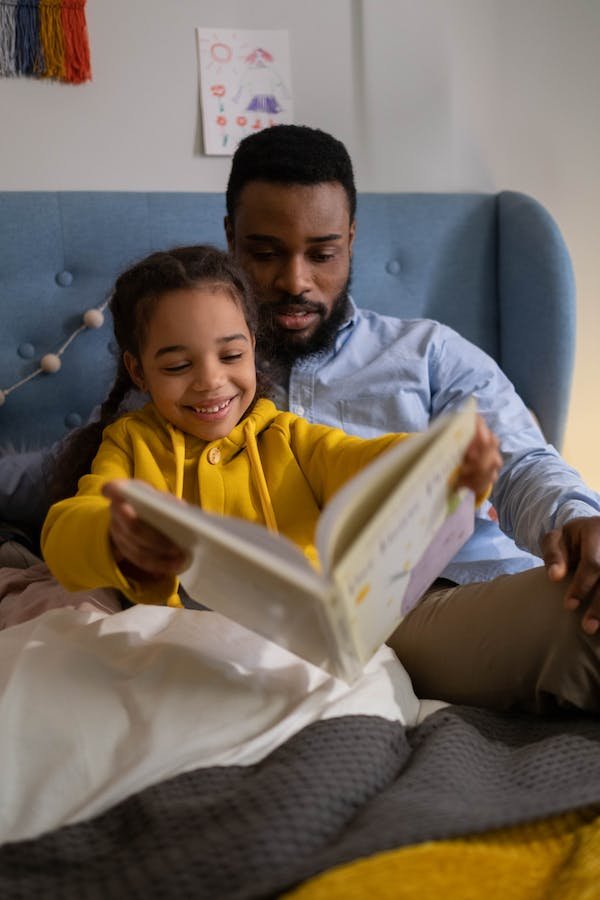Why Ask Why
The questions we ask shape how children prioritize information. Certain kinds of questions, especially "why" questions, help children see a bigger picture and learn advanced and abstract concepts.
Melinda Wenner Moyer, a health, science, and parent journalist, and Caren Walker, a developmental psychologist from University of California Santa Cruz, share research showing that asking children to explain concepts supports "learning by thinking."
They encourage adults to pause and ask children relevant questions about what they've just observed. Why questions such as "Why did that happen?" or "Why does this character feel (insert feeling)?" or "Why did that work or not work?" help children organize and express their ideas about the world around them.
Read more of Moyer's work here and find Moyer's book How to Raise Kids Who Aren't Assholes on the Learn Play Grow resource page.
Learn Play Grow story times are full of "why" questions!
We start with choices. Why? Because choices engage motivation, and motivation supports learning.
Little learners choose both their books and their body supports. Why? Because building awareness of their bodies' needs and what works for them supports their focus and engagement. Here are some of our favorite body supports for story time:
Stand up
Lie down on tummies
Sway or snuggle in a swing,
Sit criss-cross, legs in front, legs to the side, in a chair, on a stool, or on a balance ball.
Then we take a "picture walk" by looking at illustrations and making predictions and inferences about what happens in the story. Why? Because picture walks give children prompts and context for exploring ideas.
What do you see happening?
What do you think is going to happen next?
When we read the story, we pause every few pages to reflect. Why? Because reflection questions encourage little learners to share ideas and build on each other's ideas.
Why did ___ happen?
How is ___ feeling? Why do you think they feel that way?
Does ___ make sense? Why or why not?
What would you do if ___?
Sometimes we create sequels to books or write the story from a different perspective. Why? Because putting understanding into action solidifies learning. Action is about application, not just recall! One little learner retold The Day the Crayons Quit from the perspective of the peach crayon, whose paper had been peeled, leaving him without clothes and feeling embarrassed. What great perspective-taking and advocacy!
Join the Learn Play Grow newsletter to receive your FREE Power of Play Guide, and follow Learn Play Grow on Facebook and Instagram and YouTube.
Rebecca A. Weiner, M.Ed. Is a dynamic educator who is passionate about helping young children with diverse abilities, their families, and their teachers connect, communicate, and learn with confidence. She specializes in play-based enrichment, parent coaching, developmental and inclusion support, and consulting in schools.


